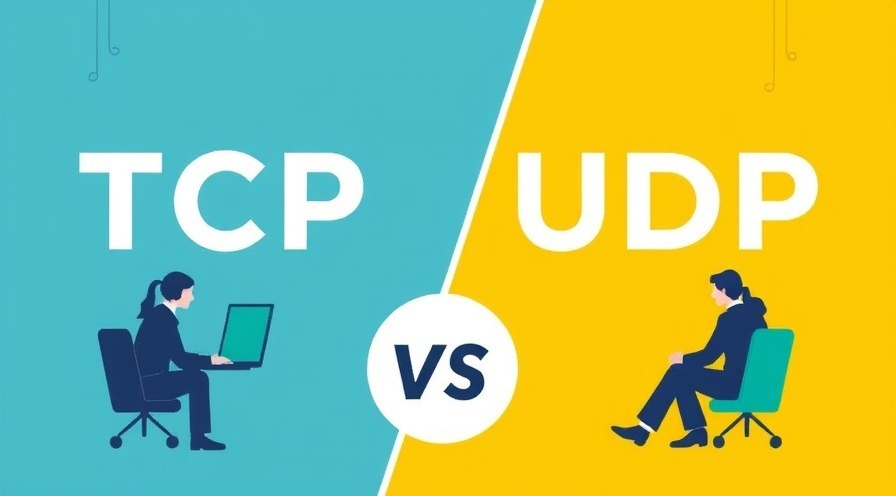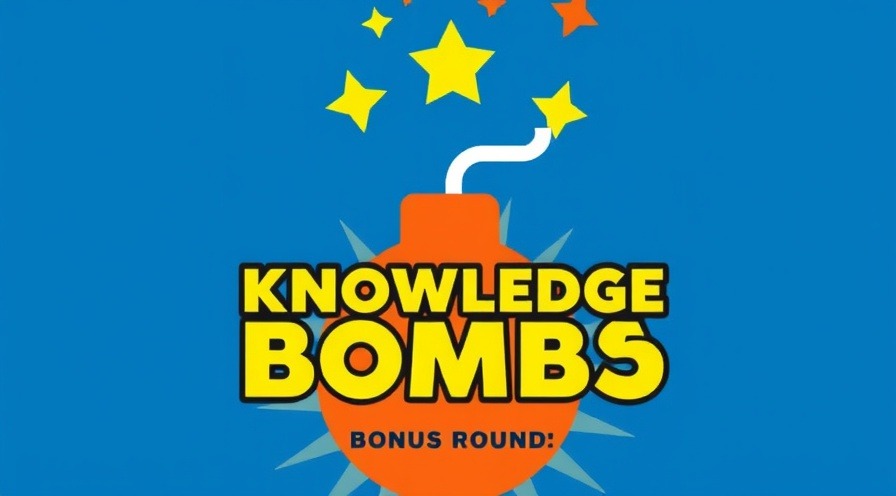Did you know? By 2030, the global cloud computing market is expected to surpass $2 trillion, yet a critical shortage of certified professionals remains. AWS certification isn’t just a badge—it’s a passport that’s launching career-changers into new, high-paying technology roles.If you’re considering transitioning into cloud computing or eyeing the coveted Solutions Architect career, this guide reveals how Amazon Web Services certification sets you apart, unlocks new opportunities, and accelerates your entry into one of the world’s most in-demand fields.Why AWS Certification Is Transforming Career Paths: Powerful Data and Surprising FactsThe rapid rise of cloud computing has triggered an unprecedented demand for certified talent. In the past decade, organizations have shifted critical infrastructure and workloads to platforms like Amazon Web Services , making AWS certification the new currency for tech professionals and ambitious career changers alike.According to recent labor market analyses, job postings citing “ aws certified ” have risen by more than 50% year-over-year. Even non-technical professionals are making the leap, as recruiters increasingly recognize the value of cloud skills.What’s fueling this surge? Companies urgently need staff who understand web services and enterprise solutions. Certification demonstrates not just technical prowess, but also your commitment to continuous learning—traits that modern employers cherish. Getting amazon web service qualified is often the difference between landing an interview or being overlooked.For career changers, this presents a strategic route to secure new roles that were previously out of reach, especially as more industries digitize their processes and interfaces.Discover the dramatic growth in cloud computing and how AWS certifications are rapidly becoming the new currency for tech career changers.Explore statistics showing increased demand for cloud expertise and why amazon web services certification is an industry differentiator.What You’ll Learn from Pursuing AWS Certification as a Career ChangerEmbarking on the aws certification journey offers more than just a credential—it transforms your understanding of cloud computing and shapes your professional story. You’ll discover the true benefits of AWS credentials, ranging from higher earning potential to an expanded network of cloud-savvy peers.Many career changers find encouragement in real-world success stories, where determined learners transition from fields like finance or education into thriving aws cloud roles. Detailed guidance, curated training resources, and strong communities empower you to break into tech with confidence—even if you’re starting from scratch.This article delivers step-by-step guidance for leveraging amazon web services training , so you know exactly how to prepare, which credentials to pursue, and which skills recruiters seek most. You’ll also get an in-depth analysis of how earning an aws certified cloud practitioner or Solutions Architect credential drives employability and helps navigate the modern hiring landscape in 2024. Plus, we’ll pinpoint the most valuable aws skills , ensuring you equip yourself with what top tech employers value most in today’s marketplace.As you map out your AWS learning journey, it’s also worth considering how virtualization technologies can complement your cloud skills—especially for those interested in maximizing resource efficiency or running multiple environments. For a practical look at how virtualization can expand your technical toolkit, check out this guide on using virtualization to simulate multiple computers on a single machine .Understand the core benefits of aws certificationReal-world stories from successful career changersStep-by-step guidance for leveraging amazon web services trainingAnalysis of the impact of earning a certified cloud credential on employabilityKey aws skills recruiters are seeking in 2024How AWS Certification Opens Doors: What Is the AWS Certification?AWS certification refers to a suite of professional credentials offered by Amazon Web Services that validate your expertise in designing, deploying, and managing cloud-based solutions. These certifications mark different proficiency levels across topics such as cloud practitioner , architecture, operations (like sysops administrator ), development, security, and machine learning.By building proficiency in these areas, certified professionals become valuable assets for companies aiming to optimize their cloud infrastructure. More importantly, acquiring an amazon web service certification is a proven way to demonstrate your commitment and readiness for a new role in an evolving digital economy.Understanding AWS Certification: Overview and PurposeAt its core, an aws certification proves you have the practical and theoretical skills necessary to thrive in the fast-paced world of cloud computing. Amazon web services offers multiple level certifications , starting from foundational to associate, professional, and specialty.Each track is designed to build competency in key domains like networking, security, machine learning , and solution design. The professional and specialty certifications, in particular, differentiate candidates in competitive job markets. As more businesses trust cloud platforms with mission-critical data and applications, holding a recognized credential is often non-negotiable for those who want to stand out.The industry now views cloud certification as a must-have, not merely a “nice-to-have.” As cloud adoption explodes across sectors, these certifications enable career changers—from marketing analysts to technical writers—to transition smoothly into the tech sphere. The growing number of organizations posting roles requiring aws certifications highlights how important these credentials have become in the modern workplace.Definition and significance of aws certificationBreakdown of amazon web service certification levelsThe rise of cloud certification as a differentiator among candidatesThe Value of Cloud Practitioner and Solutions Architect CredentialsStarting with the aws certified cloud practitioner exam provides a solid foundation in essential cloud computing concepts, security, pricing, and compliance. This entry-level certification is ideal for those new to tech or cloud technology, providing a versatile skill set that applies across industries.As you progress, the Solutions Architect certification dives deeper into system design, scale, and deployment—skills highly sought after in dynamic organizations relying on amazon web services.Unlike many other cloud certifications , AWS credentials are recognized globally by recruiters and employers. Whether compared to Microsoft Azure or Google Cloud certifications, aws certification is often preferred due to Amazon’s established dominance in the market and its comprehensive approach to real-world cloud architectures.For those belonging to non-traditional backgrounds, early success with a cloud practitioner exam seamlessly opens doors to advanced certifications that further increase your value and opportunities.How becoming an aws certified cloud practitioner builds foundationThe progression from basic to advanced aws certificationsComparing aws cloud credentials with other cloud certificationsExploring the AWS Certification Journey: Top Tips for Career ChangersLearning AWS Fast: Can You Really Learn AWS in 2 Weeks?The idea of mastering aws cloud technology in just two weeks is enticing, especially for motivated career changers. While basic aws training and the foundational cloud practitioner exam might be achievable in such a timeframe—particularly for those with previous IT or technical experience—building sustained cloud expertise generally requires more time. Your success in “learning AWS” depends on factors like prior exposure to IT, daily study commitment, and your targeted level certification.Many accelerated learners draw inspiration from online case studies, showing that with focused study plans and immersive practice in web service environments, you can make remarkable progress—even if you’re balancing a job or family responsibilities.The secret isn’t just about cramming content, but about grasping the architecture, workflow, and applying aws skills in mock labs. For most career changers, a realistic strategy blends self-paced video modules, hands-on projects, and regular practice exams to reach full readiness, especially for the highly valued Solutions Architect level.Realistic Timelines: From AWS Training to CertificationThe road from starting to “ learn cloud ” to passing an aws certification exam is unique for each student. Faster completion is possible if you already possess a tech background. If not, expect a learning curve as you explore networking, security, and automation within amazon web service environments. Engaging with peers or finding a mentor can significantly boost momentum—sharing tips, troubleshooting, and discussing key concepts accelerates progress and fosters confidence for the exam.Regardless of speed, the most successful candidates set realistic milestones (weekly goals, recurring practice sessions) and keep focused on practical, real-world cloud deployments rather than memorizing trivia. With the right mix of aws training resources—like guided labs, comprehensive instructor-led classes, and reputable certification prep platforms—the average prep time for a foundational certificate is 2-4 weeks, while advanced certifications may extend to 2-3 months.Factors that influence your aws training journeyLearning from peers: case studies of rapid certified cloud learnersSetting effective expectations for career changers in cloud computingComparison of AWS Training Resources and Estimated Completion TimesAWS Training ResourceStudy FormatAverage Completion TimeIdeal ForOfficial AWS Training PathwaySelf-paced & Instructor-led2-4 weeks (Foundational)Beginners, Career ChangersThird-Party Cert BootcampsInstructor-led, Cohort-based1-2 weeks (Intensive)Tech Professionals, Fast-trackPractice Exam PlatformsOnline Quizzes & LabsOngoing, As NeededEveryone (Reinforcement)YouTube & Peer Study GroupsVideo, InteractiveFlexibleBudget LearnersFacing Challenges: Is It Hard to Get an AWS Certification?Many career changers wonder about the actual difficulty of passing an aws certification exam. The truth is, while amazon web service exams are designed to test real-world problem solving, their difficulty varies by level. The entry-level cloud practitioner credential is approachable, focusing on fundamental cloud concepts.But as you progress toward more technical certifications like Solutions Architect or sysops administrator , you’ll encounter scenario-based questions that demand applied aws skills in designing scalable solutions, troubleshooting, and automation.The biggest hurdles usually stem from trying to memorize facts without hands-on practice. Modern exams reflect how you’d truly use amazon web services in the workplace—building environments, configuring secure networks, and managing costs.Tackling these challenges requires blend of theoretical study and persistent practice in the AWS console. Mastering practical skills often turns what feels like a steep learning curve into a rewarding, achievable milestone for any determined learner.Overview of the aws certification exam difficultyMost common hurdles faced by amazon web service candidatesHow practical aws skill development overcomes challengesExpert Quote: Tackling the AWS Certification Exam with Confidence“Dedication to learning the fundamentals of web services can turn any career changer into a cloud expert.” — AWS Certified Solutions Architect, J. DonaldsonCareer Benefits: Can an AWS Certificate Get You a Job?Achieving aws certification can decisively impact your job prospects. Today’s hiring managers don’t just want potential—they want proven cloud expertise. Research indicates that AWS certified professionals enjoy better marketability and, often, a higher salary compared to their uncertified counterparts.Companies across financial services, healthcare, retail, and more routinely prioritize candidates with credentials like cloud practitioner or Solutions Architect. For a career changer, these certifications signal to recruiters that you have industry-standard knowledge and a proactive attitude.Beyond the resume boost, certification opens doors to peer networks and industry communities, connecting you to mentors, job boards, and referrals. Recruiters and hiring managers frequently mention that amazon web services certification reduces their onboarding time because certified candidates tend to hit the ground running. In 2024, with the continuous expansion of cloud computing , there’s never been a better time to unlock tech careers with these in-demand skills.Recent hiring trends for AWS certified professionalsHow cloud expertise reshapes your resumeRecruiter insights on Amazon Web Services certification valueTop Job Roles Requiring AWS Certification:Solutions ArchitectSysOps AdministratorCloud PractitionerMachine Learning SpecialistMapping the AWS Solutions Architect Pathway for Career ChangersFor career changers, plotting a path to become an aws certified Solutions Architect requires a systematic approach. Begin by solidifying cloud fundamentals with the cloud practitioner certificate.Next, enroll in targeted aws training courses—ranging from video modules to labs—which guide you through advanced topics like high-availability design, migration, and security best practices. Implement what you learn in hands-on projects to reinforce theoretical knowledge, demonstrating real impact on sample workloads and complex architectures.Most successful career shifters leverage their foundational knowledge when advancing to higher certifications. While some focus solely on the architect track, branching out into specialized web services —such as machine learning or sysops administration —further broadens your horizons.The combination of practical project experience and recognized credentials forms a compelling narrative for tech employers: you’re not just certified, but truly job-ready in the AWS ecosystem.Step-by-Step Strategy to Prepare and Pass AWS Certification ExamsResearch and enroll in recommended aws training resources and preparation coursesApply cloud practitioner basics toward more advanced amazon web services rolesDevelop core aws skills through hands-on project experienceTo maximize your outcomes, set a learning schedule, participate in cloud peer groups, and regularly review progress. Balancing guided coursework with independent labs ensures knowledge sticks long term. Be sure to take practice exams that mirror real test conditions to build confidence and expose blind spots ahead of your certification date.Comparing AWS Certification with Other Cloud CertificationsWhen weighing your certification options, it’s important to consider not only what you’ll learn but also the market’s demand for each credential. While aws certification remains the leading choice due to Amazon’s massive cloud dominance, other platforms like Microsoft Azure and Google Cloud offer compelling alternatives. Each vendor’s program comes with its own set of features, costs, and industry recognition. For career changers aiming at maximum ROI, choosing the right cloud platform depends on the roles and industries you’re targeting.According to industry reports, though Azure and Google Cloud have made headway in specialized spaces like data analytics or artificial intelligence , AWS leads in enterprise-scale adoption. The versatility and global recognition of aws certifications make them a solid investment—particularly when mapped against compensation, job growth, and accessible learning resources.AWS vs. Azure vs. Google Cloud: Which Certification Offers the Best ROI?Let’s break down the major differences so you can align your career goals with the most relevant cloud credential. Below you’ll find a feature-packed table comparing key aspects of aws certification , Microsoft Azure, and Google Cloud programs.Cloud Certification Comparison Table: Key Features, Costs, Industry RecognitionCertification ProgramCore FocusEstimated CostAverage Industry RecognitionAWS Certification (Amazon Web Services)Cloud Architecture, Security, DevOps, AI$100–$300 per examHighestMicrosoft AzureHybrid Cloud, Integrations, Windows$99–$165 per examHighGoogle CloudData, Machine Learning, AI, Analytics$125–$200 per examHigh, but less broadShould You Choose AWS Certification for Your Career Shift? Pros, Cons, and InsightsEvaluating the advantages and drawbacks of pursuing aws certification helps career changers set realistic expectations. The benefits are clear: booming global demand, access to a robust, collaborative learning community, and a well-structured path—even for those from non-tech backgrounds. However, a steep initial learning curve can challenge those unfamiliar with IT concepts, highlighting the importance of dedication and continuous practice in web services environments.Pros: Global demand, robust community, comprehensive learning pathCons: Steep initial learning curve for non-technical backgrounds“A single aws certification often increases earning potential by 25% or more for mid-career professionals.” — Cloud Computing Industry ReportFrequently Asked Questions on AWS Certification for Career ChangersWhat level certification should a beginner choose in Amazon Web Services? Beginners are advised to start with the aws certified cloud practitioner exam. It introduces essential cloud computing concepts, core web services , billing, and security. This certification is accessible and establishes a strong base for moving toward more advanced tracks like solutions architect.Do employers prefer AWS certifications to traditional degrees? Increasingly, yes. In fast-evolving industries, aws certification shows practical, job-ready skills and current cloud knowledge. Many recruiters value certifications on par—or sometimes more highly—than traditional four-year degrees, especially for technology and IT roles.Does AWS certification expire? Yes, all aws certifications are valid for three years. To stay recognized as aws certified , candidates must recertify, ensuring they remain current with the latest amazon web services advancements.Expert Advice: Common Mistakes When Preparing for AWS Certification ExamsOveremphasizing theory over practical aws skill applicationNeglecting specialized training for solutions architect vs. sysops administratorMany candidates make the mistake of focusing solely on study materials or online lectures. To truly excel, blend your theoretical study with repeat hands-on labs. Tailor your practice toward the specific needs of your targeted level certification —what’s crucial for a Solutions Architect may not be as relevant for a SysOps Administrator. Customizing your approach will give you the best shot at passing on your first attempt.Key Takeaways: Why AWS Certification Can Revolutionize Your Career ChangeAWS certification is a fast-growing pathway to high-demand cloud jobsCareer changers achieve measurable ROI with cloud practitioner and advanced certificationsSetting clear learning objectives and leveraging top aws training ensures successTake the Next Step: Unlock Your Potential with AWS CertificationReady to accelerate your tech career? Start your journey with industry-leading aws training and certification.Sign up for our exclusive AWS Certified Solutions Architect prep program today and seize your cloud future.Act now : Set your learning goals, engage with the AWS community, and register for an exam to transform your career trajectory this year.If you’re inspired to broaden your expertise beyond AWS and want to future-proof your career in the rapidly evolving tech landscape, exploring certifications in artificial intelligence and machine learning can be a game-changer. These advanced credentials are increasingly sought after by employers looking for professionals who can bridge cloud infrastructure with intelligent automation.For a comprehensive overview of the most impactful AI and machine learning certifications to pursue next, dive into this guide to the top AI & machine learning certifications for 2026 . Expanding your skill set in these areas can unlock new roles, higher earning potential, and a competitive edge in tomorrow’s job market.Earning an AWS certification can significantly enhance your career prospects, especially for those transitioning into cloud computing roles.According to a comprehensive guide by Zertly, AWS-certified professionals often experience salary increases ranging from 46% to 67%, with entry-level cloud roles starting at $65,000–$85,000 and mid-level positions reaching $95,000–$130,000. ( zertly.com )Additionally, AWS certifications are globally recognized, providing access to a vast network of professionals and exclusive resources, which can further accelerate your career growth. ( aws.amazon.com )


 Add Row
Add Row  Add
Add 




Write A Comment